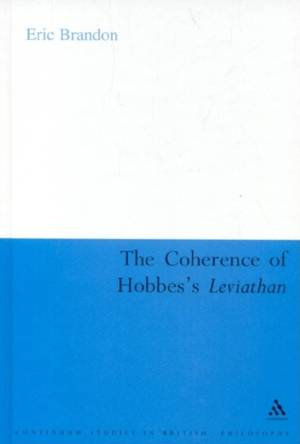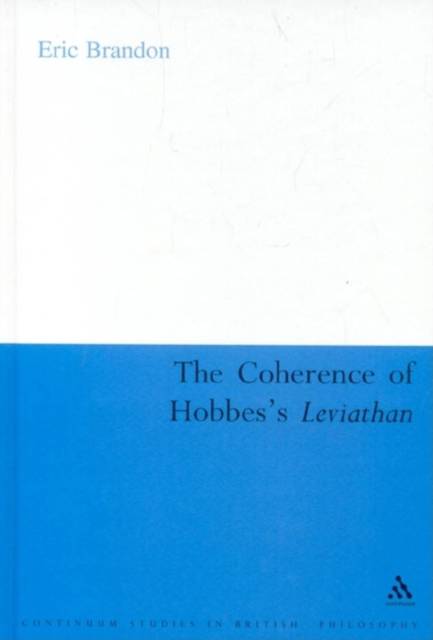
- Afhalen na 1 uur in een winkel met voorraad
- Gratis thuislevering in België vanaf € 30
- Ruim aanbod met 7 miljoen producten
- Afhalen na 1 uur in een winkel met voorraad
- Gratis thuislevering in België vanaf € 30
- Ruim aanbod met 7 miljoen producten
Zoeken
€ 390,45
+ 780 punten
Omschrijving
Seventeenth-century Europe witnessed intense and widespread political and sectarian strife. In England, these conflicts led to the Civil War, the execution of Charles I, the restoration of Charles II, and the Glorious Revolution. Just before and during the English Civil War of the 1640s, Thomas Hobbes wrote in defence of the monarchy in the face of attacks by Parliament - his aim being to eliminate the root causes of civil war and internal strife, whether politically or religiously motivated. This book examines Hobbes's arguments for how best to achieve this aim, taking fully into account the political, philosophical, and religious context of Hobbes's time. Eric Brandon contends, controversially, that Hobbes's arguments in Leviathan are founded upon both philosophical materialism and the religious ideas of the Radical Reformation. Brandon's position represents an original challenge to the two prevailing views, which are that Hobbes is either an atheistic materialist using religious language to hide his atheism, or that he sincerely held orthodox religious views despite his materialism. Brandon argues instead that Hobbes should be seen as synthesizing materialism and the Radical Reformation to produce a new political philosophy. The book shows for the first time how the secular Parts I and II of Leviathan fit together with the more religious Parts III and IV to form a coherent whole.
Specificaties
Betrokkenen
- Auteur(s):
- Uitgeverij:
Inhoud
- Aantal bladzijden:
- 160
- Taal:
- Engels
- Reeks:
Eigenschappen
- Productcode (EAN):
- 9780826489487
- Verschijningsdatum:
- 31/03/2007
- Uitvoering:
- Hardcover
- Formaat:
- Ongenaaid / garenloos gebonden
- Afmetingen:
- 164 mm x 235 mm
- Gewicht:
- 381 g

Alleen bij Standaard Boekhandel
+ 780 punten op je klantenkaart van Standaard Boekhandel
Beoordelingen
We publiceren alleen reviews die voldoen aan de voorwaarden voor reviews. Bekijk onze voorwaarden voor reviews.








